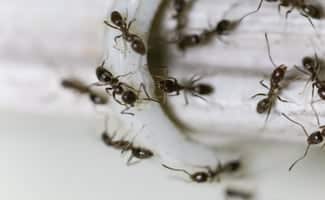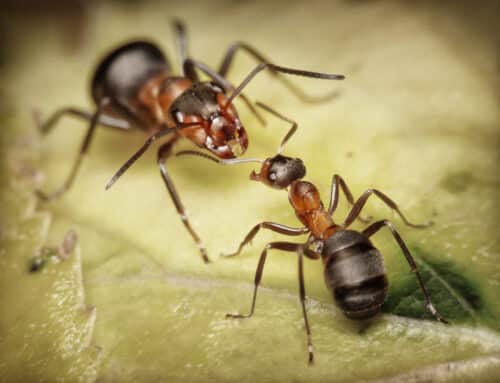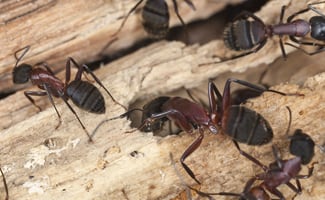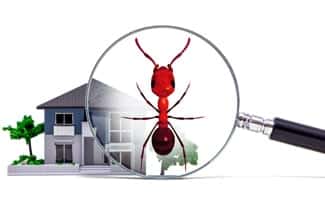
When the warm weather arrives in the Pacific Northwest, the ants are rarely far behind. Ants are among the most common pests to invade area homes during the summer. The odorous house ant can quickly become a serious nuisance for homeowners once they make it inside, and carpenter ants can be especially difficult to deal with when they colonize a home. Learning how to get rid of ants – which starts with understanding why they enter homes, how they communicate, and what you can do to stop them from finding what they seek.
Why do ants enter homes?
The common house ant is sometimes referred to as the sugar ant, or the odorous ant due to the unpleasant odor it leaves behind when crushed. House ants enter homes to look for food, preferring sugars and proteins.
- Ants are social insects that communicate using scent, and leave behind a scent trail so that other members of the colony can follow.
- Colonies of ants can easily number in the thousands, and when scouts identify a promising source of food you may find a trail of ants leading from their entry point to the food source.
- Since house ants often enter from the outside looking for food, you may be able to address the issue by cutting off the source of food and taking steps to prevent house ants from entering in the future.
Carpenter ants are harder to find, and more difficult to eradicate with DIY methods. They nest in moist wood, which is most commonly found in areas of the home with leaks or other damage. You may find carpenter ants near damaged walls, or around the foundation of your home. Carpenter ants pose a more serious challenge, and will typically require help from the ant control experts.
How do I get rid of ants?
Prevention is the first key toward eliminating problems with house ants, so keeping your kitchen spotless is the perfect place to start. When we say spotless, we mean taking a few steps above and beyond the typical kitchen cleaning. An otherwise clean kitchen can still be an attraction for ants, if there are small bits of food in hard-to-reach places.
- Clean all surfaces in kitchen and dining areas with disinfectant.
- Sweep or vacuum beneath the dining room table frequently, especially if there are children in the home.
- Clean all appliances, and vacuum regularly to make sure that there is no stray food beneath or behind.
- Take out the garbage quickly when full, clean up spills thoroughly when they occur, and avoid leaving dirty dishes in the sink.
- Repeat regularly to keep kitchen and dining areas free of food for ants.
If house ants have already entered your home, you can use what you learned about how they communicate to get rid of ants and help keep them from coming back.
Mix a solution of one part vinegar to three parts water in a spray bottle, and spray the trail from the source of food to the point where the ants entered your home. This will eliminate the scent trail that ants use to navigate, and discourage further foraging. If you’re able to identify the entry point, make sure that it is cleaned and sealed so that ants can’t reenter from the same place in the future.
What if I have a serious ant infestation?
If you’re dealing with a house ant infestation that is difficult to control, or another type of ant like carpenter ants, then it may be time to contact an ant control expert. Our team at Cascade Pest Control will be able to help identify the ant species, the source of the ant problem, locate the colony, and eliminate your ant infestation in a safe, ecologically friendly manner.



